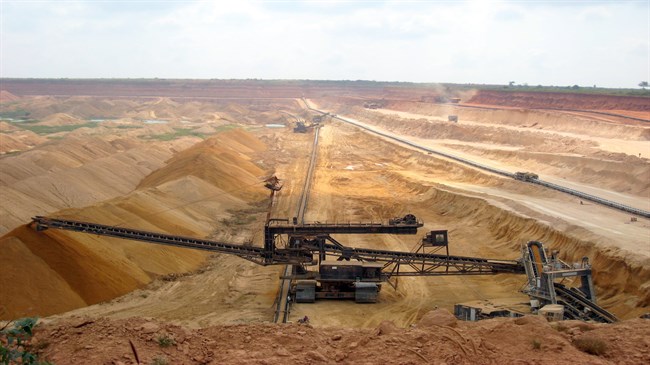
Over 10,000 job opportunities created by IMIDRO in four years
January 02, 2018 - Iranian Mines and Mining Industries Development and Renovation Organization (IMIDRO) has created over 10,000 job opportunities in past four years.
Announcing this, the organization's Managing Director Mahdi Karbasian said mine and mineral industries sector was prioritized by the 11th and 12th governments to create job opportunities, imidro.gov.ir reported.
With the implementation of iron ore production projects, about 4,000 job opportunities have been created in the past four years, said the official.
The iron ore processing plants raised the annual production capacities of iron ore concentrate, pellet and steel with output rising to 56 million tons, 48 million tons and 31 million tons, respectively.
Iran announced in September 2017 that it has discovered a new iron ore mine in the central province of Yazd which is estimated to hold two billion tons in reserves whose iron content is 70 percent.
The reserves were discovered at a depth of 1,500 meters, said Director General of Industry, Mine and Trade Department of Yazd Province Mohammadreza Alamdar-Yazdi.
The official described the mine as 'unique' in terms of reserves and iron content in the world, noting that it will help the capacities of Yazd and Iran in general in a 'huge' way. Iran's total reserves of iron ore — the raw material for making steel — are already exceed three billion tons.
"Altogether, 90 percent of the Yazd Province is a mineral-bearing area, of which 28 promising and significant areas have been explored so far," he said.
Golgohar iron ore reserves in Kerman in south-central Iran are one of the world's largest, yielding up to five million tons a year.
Iran is also advancing a massive steelmaking project in the country's east, which is being promoted as the 'South Pars' of the steel industry. Sangan, estimated to hold 1.2 billion tons of iron ore, is to receive $2 billion in initial investment.
Iran's steel sector is up for a surge in the next eight years with exports target set at 20-25 million tons. Iran exported four million tons of steel last year, according Karbasian.
Currently, the country produces 16 million tons of steel, the bulk of which is used domestically.
Iran is the Middle East's biggest carmaker and steel is strategically important in view of its massive oil and gas industry, transportation network, water supply, urban centers and mammoth construction.
Karbasian said Iran planned $29 billion in investment in the mining sector, of which $15 billion is expected to come from foreign sources.
The country is courting international prospectors into a sector which boasts some of the world's most stupendous riches but remains vastly underdeveloped under the shadow of its sprawling oil industry. The projects include production of aluminum, steel, rare earth elements, copper, gold and coal.
Iran possesses seven percent of the world's mineral reserves worth about $700 billion, including the world's largest deposits of copper, zinc and iron ore, but officials say this figure could rise to $1.4 trillion with new discoveries.
The provinces of Kerman, Yazd, East Azarbaijan, West Azarbaijan and Golestan hold much of the country's mineral reserves.
Semi-finished iron ore projects such as concentration, pelletizing and sponge iron production are a priority, with exports expected to stop from 2019.
The plan is in line with Iran's bid to move toward high-end processed products and do away with sales of raw materials, according to Karbasian.
